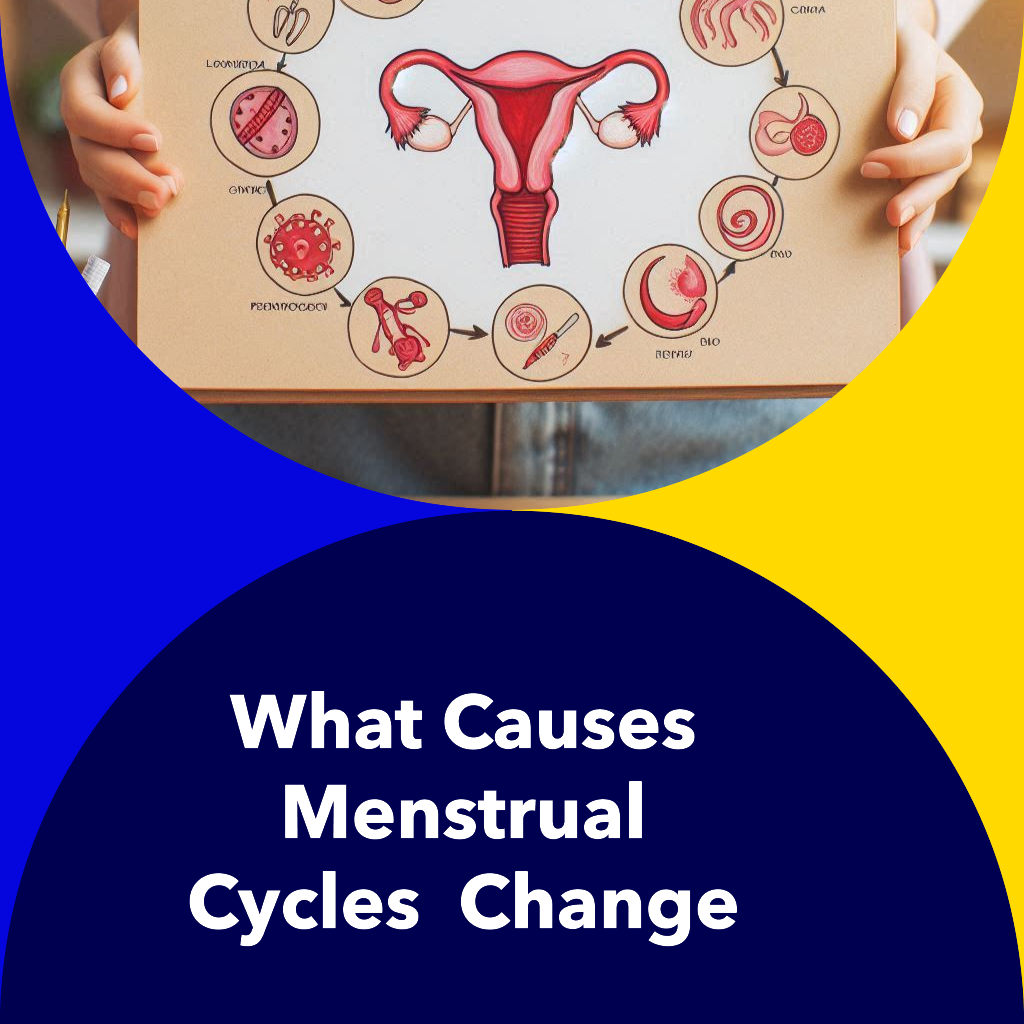What Causes Menstrual Cycles to Change?
Summary
Having irregular periods is common. However, frequent or significant changes to a person's menstrual cycle may indicate an underlying health condition. Possible causes of menstrual cycles changing include fibroids, stress, and more.
Doctors consider a menstrual cycle to be irregular if it lasts longer than 38 days or if the length of each cycle varies by more than 7–9 days.
Below are some potential causes of menstrual cycles changing, their symptoms, and their treatments.

Pregnancy
Pregnancy stops menstrual cycles. A missed period or spotting instead of a period can be the earliest sign. Other signs of early pregnancy may include:
- Morning sickness
- Nausea
- Sensitivity to smells
- Breast tingling or tenderness
- Fatigue
Diagnosis: If a period is late, one might take an over-the-counter pregnancy test or request testing from a doctor. If the test is positive, consult a healthcare professional about the next steps. Bleeding after a positive test can indicate pregnancy loss or an ectopic pregnancy, which is life-threatening without treatment. Signs of an ectopic pregnancy include pelvic pain, nausea, vomiting, dizziness, and fainting.
Hormonal Birth Control
Hormonal birth control suppresses ovulation, meaning there is no true period, but vaginal bleeding can still occur. This bleeding might happen monthly, or there could be spotting, irregular bleeding, or no bleeding at all. If the bleeding is undesirable, consult a gynaecologist.
Breastfeeding
Prolactin, the hormone responsible for breastmilk production, can suppress ovulation, especially in those who exclusively breastfeed. This is known as lactational amenorrhea and is not harmful. Menstrual cycles typically return once breastfeeding frequency decreases.
Perimenopause
Perimenopause begins 4–8 years before menopause, usually in the 40s. During this time, menstrual cycles can become longer or shorter until periods eventually stop. Other signs include hot flashes, night sweats, mood changes, difficulty sleeping, and vaginal dryness.
Identifying Perimenopause: Doctors can identify perimenopause through blood tests and ruling out other conditions. Treatments are available to manage symptoms, such as lubricants for vaginal dryness or estrogen therapy for hot flashes.
Stress
High stress levels are linked to menstrual cycle changes. Stress releases hormones like adrenaline and cortisol, which can interfere with sex hormones. Chronic stress can have significant health impacts, and managing stress through techniques and mental health support can help regulate menstrual cycles.
Polycystic Ovary Syndrome (PCOS)
PCOS is characterized by cysts on the ovaries and high levels of androgens, which can stop ovulation and cause irregular periods. Symptoms include excess facial or body hair, acne, weight gain, hair loss, and difficulty getting pregnant.
Diagnosis and Treatment: Diagnosis involves symptoms, blood tests, and an ultrasound. Treatment can include medication to induce ovulation or hormonal birth control to regulate cycles.
Thyroid Conditions
Thyroid disorders can impact menstrual cycles. Hypothyroidism (underactive thyroid) can cause longer, heavier periods, while hyperthyroidism (overactive thyroid) can cause shorter, lighter periods.
Diagnosis and Treatment: Diagnosis involves blood tests for thyroid hormones. Treatment includes medication to replace missing hormones for hypothyroidism or to reduce thyroid function for hyperthyroidism.
Uterine Fibroids
Fibroids are noncancerous growths in the uterus that can cause painful, heavy periods. Symptoms include pelvic pain, lower back pain, and pain during sex.
Diagnosis and Treatment: Small fibroids may not need treatment, while larger ones might require surgical removal.
Endometriosis
Endometriosis causes uterine tissue to grow outside the uterus, leading to heavy bleeding, long periods, and pain during menstruation and intercourse.
Diagnosis and Treatment: Diagnosis is through exploratory surgery. While there's no cure, medications and hormone therapy can manage symptoms.
Underweight
Excessive or rapid weight loss can disrupt menstrual cycles, leading to hypothalamic amenorrhea and estrogen deficiency. Symptoms include dry skin, thinning hair, and tiredness.
Diagnosis and Treatment: A BMI below 18.5 indicates underweight. Treatment includes nutritional counseling or therapy for eating disorders.
Conclusion
Changes in menstrual cycles can result from various factors, including stress, hormonal changes, and underlying health conditions. If you experience significant changes in your menstrual cycle, consult a healthcare professional for diagnosis and appropriate treatment.

